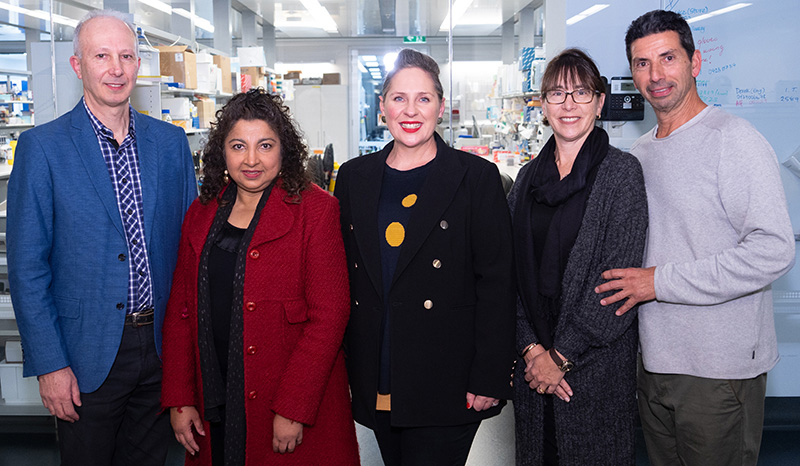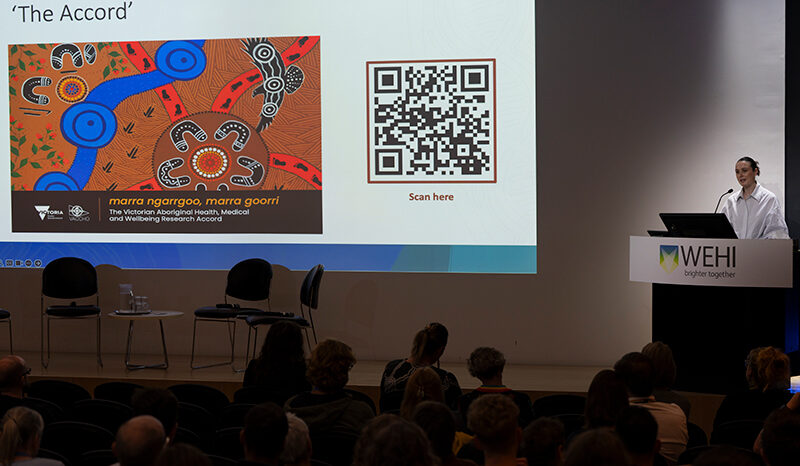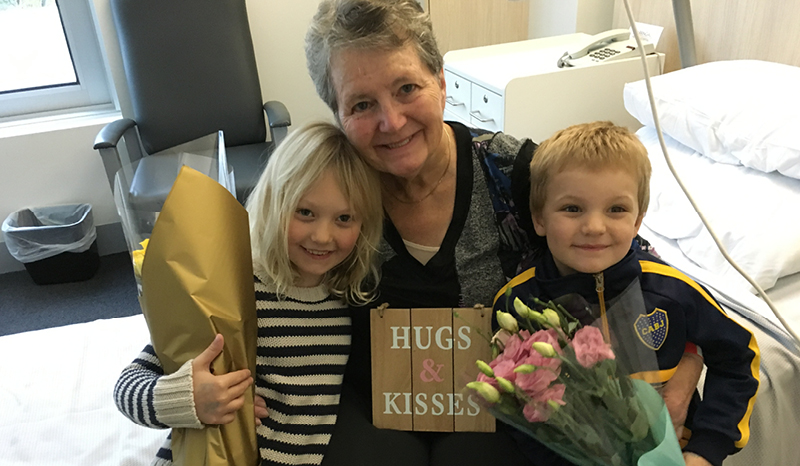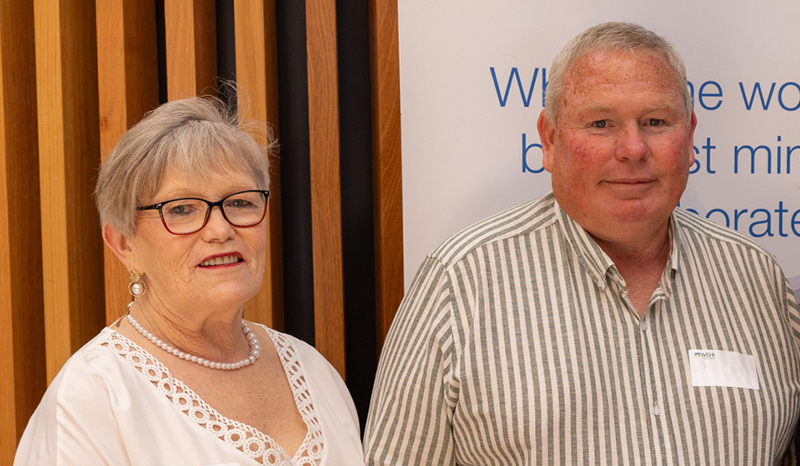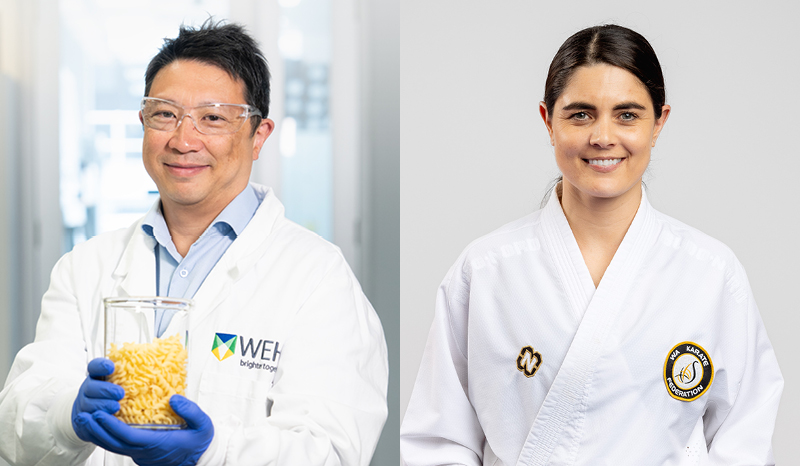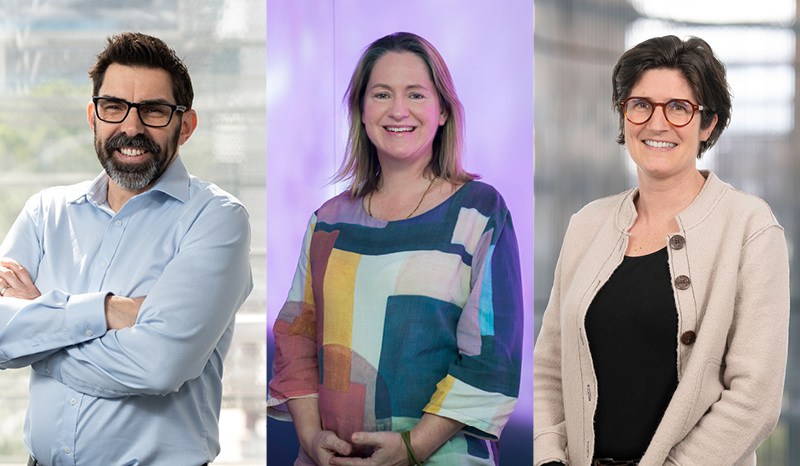Isabella, 6, and Marcus, 5, lost their lives to Diffuse Intrinsic Pontine Glioma (DIPG), a rare and fast- growing brain cancer. DIPG forms in the brain stem, the part of the brain responsible for vital functions like movement, breathing and heart rate, so it cannot be surgically removed. There is currently no treatment for DIPG, and most children die within a year of diagnosis.
Isabella and Marcus’ families were brought together by this tragedy. In honour of their children, they established the Isabella and Marcus Foundation, which raises funds to support researchers to develop treatments that improve the quality of life for children with DIPG, and ultimately find a cure.
Their generosity has supported the lab of Associate Professor Misty Jenkins AO over the past five years. The Jenkins lab team has been researching a new immunotherapy treatment called CAR-T cell therapy, which engineers the body’s own immune cells to target the cancer cells.
Rob and Khush, and Daniela and Tony, explain why they chose to support the Jenkins lab. “We share the belief that CAR-T therapy is an exciting new avenue to explore. Recently the Jenkins team designed CAR-T cells that entered the brain and reduced the tumour in laboratory models. It’s very promising.”
Each year Assoc Prof Jenkins welcomes a visit from the Isabellaand Marcus Foundation community, including other parents whose children have been diagnosed with DIPG. “The interest and generosity of the foundation provides us with much appreciated funds, but more importantly, with renewed inspiration to continue making discoveries to improve the prognosis of children with DIPG,” she says.


